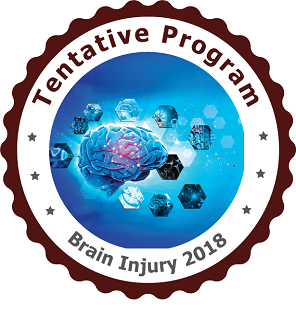
Adrián Gaitán Fariñas
IFEN institute for EEG Neurofeedback, Germany
Title: sLORETA neurofeedback in the cognitive remediation of brain insults: Recovering from an alexia due to stroke
Biography
Biography: Adrián Gaitán Fariñas
Abstract
Neurofeedback is a form of neuromodulation that uses brainwave conditioning to modify aberrant neural functioning and optimize brain functioning, leading to emotional and cognitive improvements. It has also been proposed to provide benefits in brain insults like traumatic brain injuries and stroke; through training the damaged networks and facilitating cognitive remediation. A recent evolution of Neurofeedback known as sLORETA neurofeedback uses an inverse problem algorithm solution to identify and train activity of specific Brodmann areas instead of EEG activity detected at the scalp, and it is believed to provide faster and better outcomes than classic neurofeedback due to the superior precision. We will review the case of a patient suffering from alexia following a left hemisphere stroke. QEEG and sLORETA brain imaging showed dysregulation in Brodmann areas linked to reading, and neuropsychological examination revealed profound impairment in reading function. After a relatively short, combined treatment with cognitive stimulation and sLORETA z-score neurofeedback of the damaged networks, patient experimented a significant improvement in reading and cognitive functioning. QEEG and sLORETA imaging demonstrated enhanced regulation of electrical activity in the areas trained, suggesting that sLORETA neurofeedback helped to recover the function impaired due to the brain damage. Implications of sLORETA neurofeedback in the cognitive remedation and brain insult treatment will be discussed

